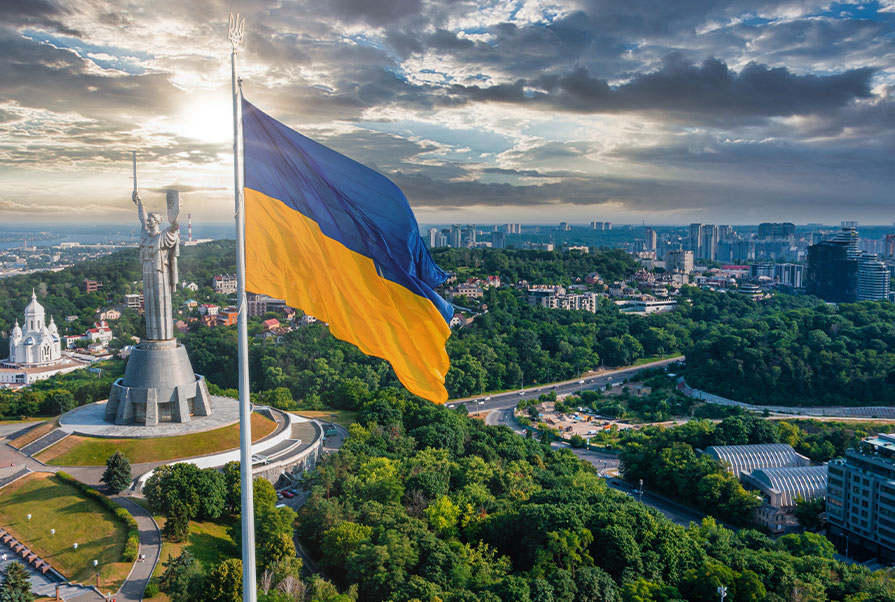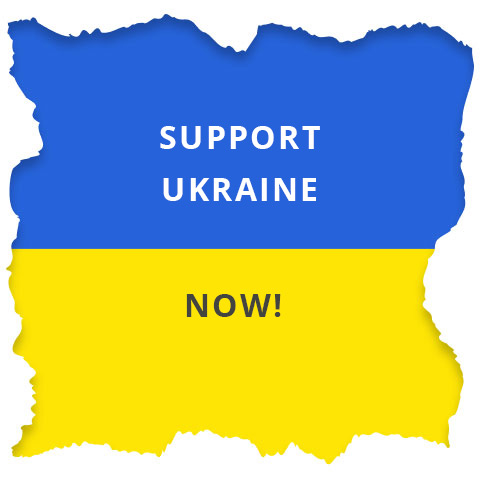Fleeing the war in Ukraine takes Olga Hordijenko on a journey that lasts a full seven days. Olga, a friend of hers, with her mother-in-law and their three children set out for Wolfenbüttel in Germany when the bombs start hitting Dnipro. All six of them cram into a car. There’s hardly any space, and because they are headed into the unknown in the midst of war, fear is almost always with them.
It’s about 2,000 kilometres from the town in Eastern Ukraine to Wolfenbüttel. It would take two days under normal circumstances. This time, however, the circumstances are anything but normal.
There’s massive congestion on the main roads.
Olga takes back roads and sometimes even dirt tracks to make good headway. Time and again, they have to stop at checkpoints. That’s really scary for the three women, especially at night. They don’t know if the men with rifles stopping them are Ukrainian or Russian soldiers – or even criminals intent on robbing them.
Despite all that, the 39-year-old can’t see an alternative to fleeing the country after the war has started. “Get your children to safety”, her sister from Bucha tells her on the phone. That’s when the six of them decide to do the road trip to escape the war. There’s chaos on the streets. On the first day they don’t even manage to leave Dnipro.
It’s raining the next day, and there’s less traffic on the roads. As Russian troops are advancing towards Dnipro from the south, the refugees try to keep north. In order to avoid traffic jams, they use back roads, but this also means they have to go through more checkpoints. Because they are traveling with children, the soldiers let them pass.
There’s a curfew at night, therefore they can’t drive after nightfall. They take the risk once and drive at night because progress during the day was too slow. “That was really dangerous. We could have been shot at”, Olga recounts later.
The next day they have to fill up the car.
Petrol has become scarce.
There are long lines at those filling stations that are still open, and on top of that, there’s a limit of 20 litres per car. That’s why – after their turn – they get back in line for another 20 litres and keep doing that until the tank is full.
They make a stop at Vinnytsia, where friends offer to take them in for a while. They don’t feel safe, though, and keep driving. They stay in Lviv, in Western Ukraine, for a whole day as the car needs some repairs. The garage doesn’t charge them for the repairs and the accommodation is free too. Some locals have invited them into their apartment.
They also get a warm reception in Poland. They spend a few hours at a friend’s place close to Warsaw. She lives in a small studio apartment. She leaves the apartment to the refugees and goes to a nearby park so that they can get some rest.
In Wolfenbüttel, they are staying in a big house with three families. Finally, they have a sense of safety. “The children hear no more sirens, missiles and fighter jets”, Olga says.
She still wants to return as soon as the war is over.
Her husband is a soldier fighting the Russian forces in Ukraine. “I hope we will be victorious”, Olga says. “We had a good life there. Here we have nothing. But I will never live under Russian rule.”
We organise accommodation, events and much more for refugees from Ukraine. Many families are in need of a new home. We provide a platform for Ukrainians to tell their stories.
We organise accommodation, events and much more for refugees from Ukraine. Many families are in need of a new home. We provide a platform for Ukrainians to tell their stories.

Our association for the correct receipt of donations is: Chancen Geben e.V. We are very committed to reconstruction in Ukraine.
Account holder:
ChancenGeben e.V.
IBAN
DE68 2709 2555 5871 9830 00
BIC
GENODEF1WFV
Intended use
Faces of Ukraine

Please note:
Monetary donations are tax deductible and up to € 300 the tax office does not require a donation receipt, but they may be supported by a transfer voucher/account statement.
We can issue a donation receipt for donations of €300 or more.
To do this, please send us a separate email with the subject “Request for a donation receipt” to: kontakt@chancengeben.org. Please include your first and last name, address, donation date and amount donated, as well as a screenshot of the transfer.
The association pursues exclusively and directly charitable purposes within the meaning of the “Tax-privileged purposes” section of the tax regulations.
Henning Kramer
Am Lecheln Holze 9
38302 Wolfenbüttel
Phone: +49 5331 703 35 95
Email: kontakt@gesichter-der-ukraine.de